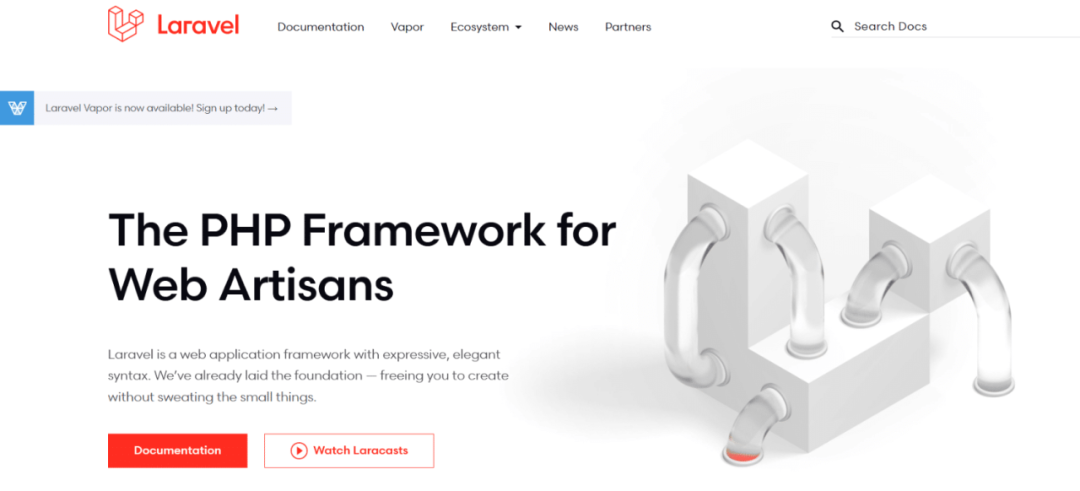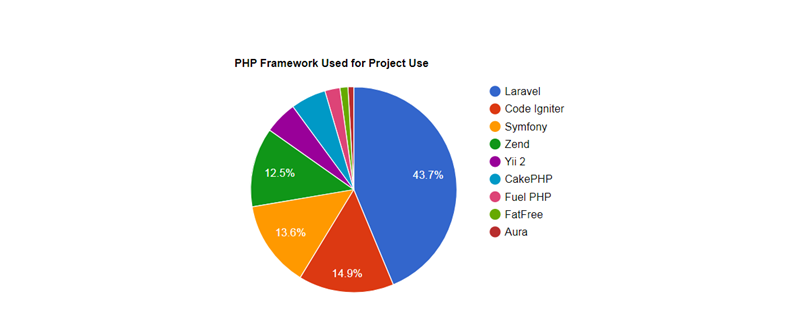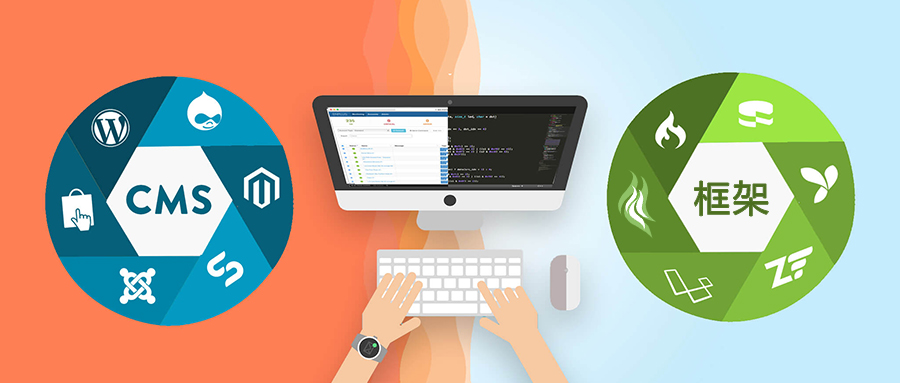 Backend Development
Backend Development PHP Tutorial
PHP Tutorial Comparison of PHP framework and other language frameworks in large projects
Comparison of PHP framework and other language frameworks in large projectsIn large projects, PHP frameworks such as Laravel stand out for their flexibility and scalability, while other language frameworks such as Next.js and Django have their own advantages. Your specific choice should consider the following factors: performance, scalability, security, documentation, and community support.

Comparison of PHP framework and other language frameworks in large projects
When developing large projects, choose the appropriate framework to It's important. PHP framework is popular for large-scale projects due to its flexibility, scalability, and rich features. However, other language frameworks are also advancing, providing developers with a wider range of options.
Influencing factors
The following factors should be considered when selecting a framework:
- Performance: The framework is very efficient in processing large amounts of data and efficiency during high concurrent access.
- Scalability: The ease of use of the framework as the project scale expands.
- Security: The framework provides features to protect projects from security vulnerabilities.
- Documentation: Completeness and availability of the framework’s documentation.
- Community Support: The framework’s active community and available resources.
Practical Case
PHP Framework: Laravel
Laravel is a popular and mature PHP framework. It is known for its concise syntax, powerful ecosystem, and rich features. It provides a variety of tools, including routing, a template engine, and a database abstraction layer, simplifying the development and maintenance of large projects. For example:
// Laravel 路由
Route::get('/user/{id}', function($id) {
return view('user', ['user' => User::find($id)]);
});JavaScript Framework: Next.js
Next.js is a React framework focused on server-side rendering and static generation. It provides excellent performance and scalability for large front-end applications. For example:
import Head from 'next/head';
import Link from 'next/link';
const Home = () => (
<div>
<Head>
<title>Next.js Example</title>
</Head>
<Link href="/about">
<a>About</a>
</Link>
</div>
);
export default Home;Python Framework: Django
Django is a full-stack Python framework known for its powerful features, ease of getting started, and broad community. It provides everything you need to build large-scale web applications, including models, views, and a template engine. For example:
from django.contrib.auth.models import User
from django.db import models
class Article(models.Model):
title = models.CharField(max_length=100)
content = models.TextField()
author = models.ForeignKey(User, on_delete=models.CASCADE)Conclusion
The choice of the most appropriate framework must be based on the specific needs of the project and the technical expertise of the team. PHP frameworks like Laravel stand out for their flexibility, extensibility, and community support. Other language frameworks, such as Next.js and Django, also offer their own advantages, depending on the type of project and the developer's preferred language. By carefully weighing factors and considering real-world use cases, developers can make informed choices and build a solid foundation for their larger projects.
The above is the detailed content of Comparison of PHP framework and other language frameworks in large projects. For more information, please follow other related articles on the PHP Chinese website!
 2023年最流行的11款PHP框架Jul 07, 2022 pm 03:30 PM
2023年最流行的11款PHP框架Jul 07, 2022 pm 03:30 PM什么是PHP框架?为什么要使用PHP框架?本篇文章就来和大家聊聊PHP框架的优势,并总结分享11款2023年最流行的PHP框架,希望对大家有所帮助!
 如何使用PHP框架Lumen开发一个高效的消息推送系统,提供及时的推送服务Jun 27, 2023 am 11:43 AM
如何使用PHP框架Lumen开发一个高效的消息推送系统,提供及时的推送服务Jun 27, 2023 am 11:43 AM随着移动互联网的快速发展和用户需求的变化,消息推送系统已成为现代应用程序不可或缺的一部分,它能够实现即时通知、提醒、推广、社交等功能,为用户和商业客户提供更好的体验和服务。为了满足这一需求,本文将介绍如何使用PHP框架Lumen开发一个高效的消息推送系统,提供及时的推送服务。一、Lumen简介Lumen是由Laravel框架开发团队开发的一个微框架,它是一个
 2023年最流行的5个php开发框架视频教程推荐May 08, 2017 pm 04:26 PM
2023年最流行的5个php开发框架视频教程推荐May 08, 2017 pm 04:26 PM如果想快速进行php web开发,选择一个好用的php开发框架至关重要,一个好的php开发框架可以让开发工作变得更加快捷、安全和有效。那2023年最流行的php开发框架有哪些呢?这些php开发框架排名如何?
 什么是PHP框架?PHP框架与CMS的区别Jun 13, 2022 pm 02:21 PM
什么是PHP框架?PHP框架与CMS的区别Jun 13, 2022 pm 02:21 PM在编程中,框架扩展了构建通用软件应用程序的支撑结构。在你开始编码之前,框架就会将程序的基本功能插入到你的应用程序中,从而简化了软件的开发过程。
 安全加固PHP框架的实施措施Aug 07, 2023 pm 06:41 PM
安全加固PHP框架的实施措施Aug 07, 2023 pm 06:41 PM标题:安全加固PHP框架的实施措施引言:随着互联网的快速发展,安全问题成为了一个不可忽视的挑战。而作为最常用的编程语言之一,PHP的安全性也备受关注。为了提高PHP框架的安全性,我们需要采取一系列的实施措施。本文将介绍一些基本的安全加固措施,并提供相应的代码示例。一、输入过滤和验证1.1XSS(跨站脚本攻击)过滤在PHP框架中,使用htmlspecialc
 使用PHP框架CodeIgniter开发一个实时聊天应用,提供便捷的通讯服务Jun 27, 2023 pm 02:49 PM
使用PHP框架CodeIgniter开发一个实时聊天应用,提供便捷的通讯服务Jun 27, 2023 pm 02:49 PM随着移动互联网的发展,即时通信变得越来越重要,越来越普及。对于很多企业而言,实时聊天更像是一种通信服务,提供便捷的沟通方式,可以快速有效地解决业务方面的问题。基于此,本文将介绍如何使用PHP框架CodeIgniter开发一个实时聊天应用。了解CodeIgniter框架CodeIgniter是一个轻量级的PHP框架,提供了一系列的简便的工具和库,帮助开发者快速
 如何使用PHP框架Yii开发一个高可用的云备份系统Jun 27, 2023 am 09:04 AM
如何使用PHP框架Yii开发一个高可用的云备份系统Jun 27, 2023 am 09:04 AM随着云计算技术的不断发展,数据的备份已经成为了每个企业必须要做的事情。在这样的背景下,开发一款高可用的云备份系统尤为重要。而PHP框架Yii是一款功能强大的框架,可以帮助开发者快速构建高性能的Web应用程序。下面将介绍如何使用Yii框架开发一款高可用的云备份系统。设计数据库模型在Yii框架中,数据库模型是非常重要的一部分。因为数据备份系统需要用到很多的表和关
 深入探讨swoole协程与PHP框架的结合开发Aug 05, 2023 pm 01:54 PM
深入探讨swoole协程与PHP框架的结合开发Aug 05, 2023 pm 01:54 PM深入探讨swoole协程与PHP框架的结合开发国内的互联网发展迅速,更多的开发者开始寻找高性能的解决方案来满足日益增长的用户需求。在PHP领域,swoole协程是一个备受关注的技术,它可以大幅提升PHP的性能,并且非常适合与PHP框架结合使用。本文将深入探讨swoole协程与PHP框架的结合开发,并附带一些代码示例。一、什么是swoole协程swoole是一


Hot AI Tools

Undresser.AI Undress
AI-powered app for creating realistic nude photos

AI Clothes Remover
Online AI tool for removing clothes from photos.

Undress AI Tool
Undress images for free

Clothoff.io
AI clothes remover

AI Hentai Generator
Generate AI Hentai for free.

Hot Article

Hot Tools

Dreamweaver Mac version
Visual web development tools

VSCode Windows 64-bit Download
A free and powerful IDE editor launched by Microsoft

MinGW - Minimalist GNU for Windows
This project is in the process of being migrated to osdn.net/projects/mingw, you can continue to follow us there. MinGW: A native Windows port of the GNU Compiler Collection (GCC), freely distributable import libraries and header files for building native Windows applications; includes extensions to the MSVC runtime to support C99 functionality. All MinGW software can run on 64-bit Windows platforms.

PhpStorm Mac version
The latest (2018.2.1) professional PHP integrated development tool

SAP NetWeaver Server Adapter for Eclipse
Integrate Eclipse with SAP NetWeaver application server.





